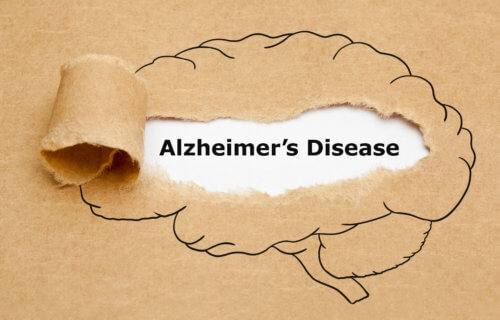TOKYO — Alzheimer’s disease is the most common form of dementia. Scientists say this degenerative disease has one key characteristic, the buildup of harmful plaques in the brain. As work continues to reduce these brain cell-killing clumps, a new study reveals why otherwise normal proteins fold up and damage a patient’s mind. Scientists in Japan say a problem with one specific enzyme may be responsible for a disease that affects millions.
Researchers from Tokyo Metropolitan University have uncovered a mutation in the enzyme MARK4 (Microtubule Affinity Regulating Kinase 4) which negatively impacts tau proteins. When these proteins begin to misfold, they form tangles which destabilize the brain’s neurons. Making the problem worse, these tangled protein won’t dissolve and gradually start killing off brain cells.
Tau easily turns from helpful to hurtful in Alzheimer’s patients
Associate Professor Kanae Ando finds tau and MARK4 usually play important roles in the body. When everything is working right, tau protein forms a vital portion of a cell’s structure — the cytoskeleton. This structure continually builds up and disassembles its arms and MARK4 helps tau detach from the cytoskeleton arms.
When mutations start to crop up in MARK4, it begins to turn proteins into what scientists call pathological tau. The study examined transgenic drosophila fruit flies which had artificially introduced mutations added to their genetic makeup. These flies produce human tau which allow scientists to study protein clumping.
The results show mutant MARK4 directly affects impacts the chemical makeup of tau. “Bad” tau proteins have an excess of chemicals which make them misfold. The pathological tau then cluster much more easily and become increasingly insoluble.
Researchers add that mutating MARK4 isn’t just a problem for Alzheimer’s patients. The study finds several diseases which see a buildup of proteins are caused by problems with the enzyme. The Japanese team believes understanding how and why MARK4 acts on proteins throughout the body will lead to a new strategy to treat this mutation.
Alzheimer’s disease impacts around 47 million people worldwide. Health officials believe that number may skyrocket to 130 million by the year 2050. Currently, there is no cure which can stop the deterioration of the brain.
The study appears in the Journal of Biological Chemistry.
